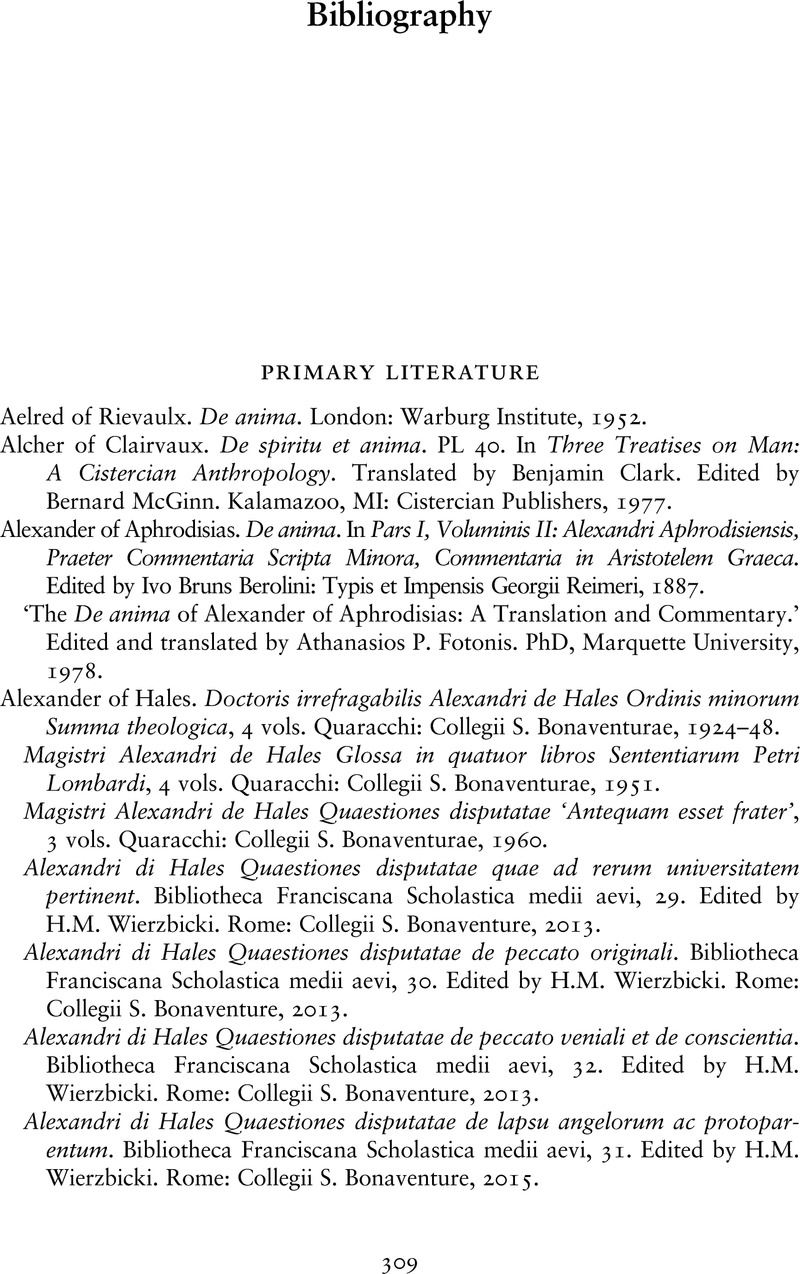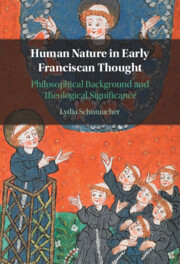Book contents
- Human Nature in Early Franciscan Thought
- Human Nature in Early Franciscan Thought
- Copyright page
- Dedication
- Contents
- Acknowledgements
- Key to Summa Halensis Citations
- List of Abbreviations
- Introduction
- 1 The Philosophy of the Soul c.1150–1215
- 2 Theological Background
- 3 The Soul and the Body
- 4 The Powers of the Soul
- 5 Cognitive Powers
- 6 Cognitive Powers in John of La Rochelle’s Summa de anima
- 7 The Reception of Averroes in Early Scholasticism
- 8 Cognitive Powers
- 9 The Affections
- 10 Free Choice
- 11 Angels
- 12 Conclusion
- Bibliography
- Index
- References
Bibliography
Published online by Cambridge University Press: 27 January 2023
- Human Nature in Early Franciscan Thought
- Human Nature in Early Franciscan Thought
- Copyright page
- Dedication
- Contents
- Acknowledgements
- Key to Summa Halensis Citations
- List of Abbreviations
- Introduction
- 1 The Philosophy of the Soul c.1150–1215
- 2 Theological Background
- 3 The Soul and the Body
- 4 The Powers of the Soul
- 5 Cognitive Powers
- 6 Cognitive Powers in John of La Rochelle’s Summa de anima
- 7 The Reception of Averroes in Early Scholasticism
- 8 Cognitive Powers
- 9 The Affections
- 10 Free Choice
- 11 Angels
- 12 Conclusion
- Bibliography
- Index
- References
Summary

- Type
- Chapter
- Information
- Human Nature in Early Franciscan ThoughtPhilosophical Background and Theological Significance, pp. 309 - 334Publisher: Cambridge University PressPrint publication year: 2023

